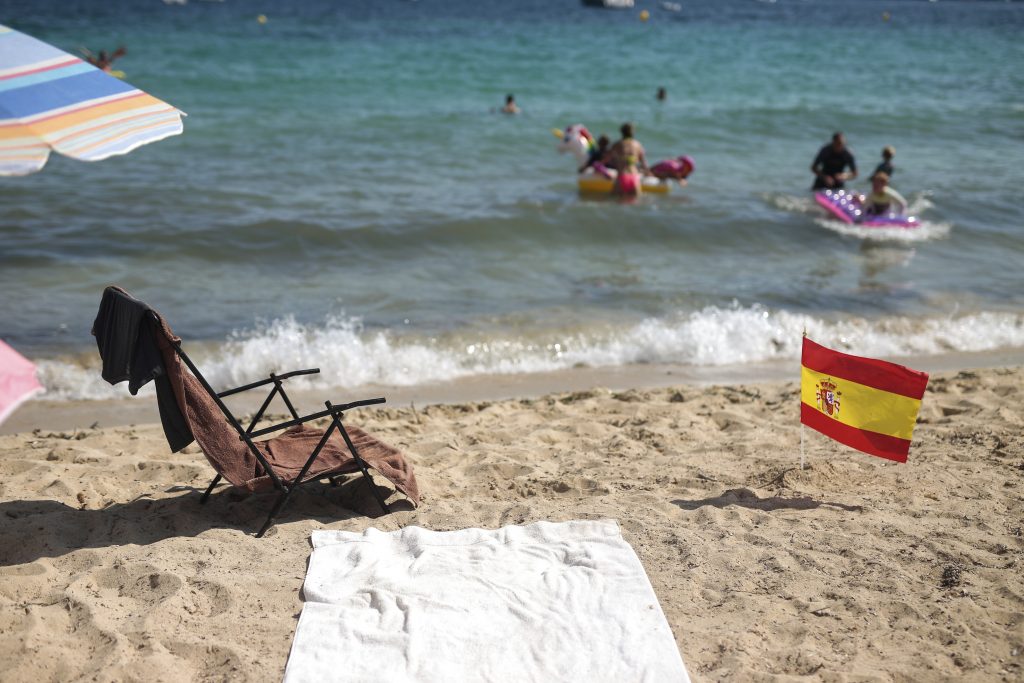26/07/2020
26/07/2020
BARCELONA, Spain (AP) - Nightclubs, bars and beaches - some of Spain’s most beloved summer venues - are facing new lockdown restrictions after turning into coronavirus hot spots, and some European nations are warning citizens not to visit the country.

The northeast regions of Catalonia and Aragón host the three most worrying virus clusters in Spain, prompting authorities to tighten restrictions in Barcelona, in a rural area around Lleida and in Zaragoza that were relaxed only a month ago when Spain had its devastating outbreak in check.
Britain put Spain back on its unsafe list beginning Sunday, announcing hours earlier that travelers arriving in the U.K. from Spain must now quarantine for 14 days. Norway also ordered a 10-day quarantine for those returning from the Iberian Peninsula. France and Belgium are recommending that travelers ditch plans to spend their summer vacations in Barcelona and its nearby beaches, which have seen crowds too massive to allow for social distancing.
Tui, the UK’s biggest tour operator, said Sunday it had cancelled all flights due to depart to mainland Spain until Aug. 9, but it has maintained flights and travel packages for trips to Spain’s Balearic and Canary Islands.
Travelers were caught off guard by Britain's move - even U.K. Transport Minister Grant Shapps is on holiday in Spain.
"I think that it is extreme. If you only come for one day, no way,” José González, a Spaniard heading to his home in London, said at Madrid’s airport. "We will have to see what happens next. We will have to respect it and that’s that. You can't do anything else.”
Spain reported over 900 new daily infections on Thursday and Friday as authorities warned that the country which lost at least 28,400 lives before getting its outbreak under control could be facing the start of a second major onslaught.
Catalonia ordered all nightlife venues to close for 15 days and applied a midnight curfew on bars in and around Barcelona and Lleida, hours after French Prime Minister Jean Castex urged French citizens not to visit Catalonia due to the upticks in new infections.
"If we see that the growth of contagion is exponential, then the only way to stop it is to limit free movement,” said Catalonia public health chief Josep Maria Argimon.
Catalonia’s regional government, run by separatists who had complained about Spain’s centralization of the health crisis from March to June, is struggling to tamp down on the growing clusters that have overwhelmed Spain's undermanned contact tracing teams.
Tourism employs 2.6 million people in Spain and generates 12% of the country’s economic activity. Spain’s government, unions and industry leaders are heavily invested in promoting the message that Spain is a safe destination for foreigners to salvage the 2020 tourism season. That now looks more like wishful thinking.
"The season is practically lost now,” Martín Sarrate, president of Catalonia’s association of travel agencies, told Spain’s public broadcaster TVE. "This is an important setback. Who is going to travel to a country if you have to go into a 14-day quarantine?”
At least one tourist disagreed
"We are returning this afternoon having had the most wonderful holiday,” English tourist Sue Marshall wrote on Twitter from Mallorca. "We would spend three weeks self-isolating to do it all again.”
Spain was negotiating with the U.K. to lift the quarantine on travelers returning from the Balearic and Canary Islands, which have an even greater dependence on tourism. Foreign Minister Arancha González Laya said the islands are "highly controlled territories” that are doing better in the pandemic now than the U.K.
France said there's no need yet to shut its border with Spain. The U.K. and France sent a combined 4.2 million tourists to Spain in August 2019.
"We have seen a wave of cancellations above all by foreign clients from France, Germany and England who were supposed to come next week, above all to Barcelona,” said David Riba, president of the Federatur tourist apartments group.
Lyndsey Thomas, CEO of the travel site Girlabout.co.uk, said the announcement was a body blow to an industry already struggling to emerge from the pandemic.
"I think we were really hopeful that 2020 might just survive. I think being able to go to Spain in the summer holidays was great news for the travel industry,” she told The Associated Press. "Spain is the No. 1 destination for Brits going into Europe, going on a fly-and-flop beach holiday. And for this to happen, there’s going to be a major impact.”
While families and the at-risk elderly in Spain are mostly complying with rules to wear face masks and maintain a 1.5-meter (5-foot) distance from others, teenagers and young adults have been flouting the health rules.
With Spain’s 19 regional governments back in charge of their health care systems, there’s been a variety of responses to the revival of the virus. But all agree on stopping the rise of cases related to nightclubs and bars, which are supposed to be requiring social distancing and face masks. Many regions have reduced the occupancy of nightclubs and some have demanded tables on the dance floors to discourage close contact. Officials in Madrid are considering similar restrictions.
Two business associations for nightclubs and bars say they will take the Catalan government to court to block a decision they say puts 35,000 jobs at risk.
Despite the worrying trends, authorities tried to send a message of calm.
"Like other European countries, Spain has outbreaks, that is not unusual," González Laya said. "The important thing is that Spain is making a huge effort to control these outbreaks.”


